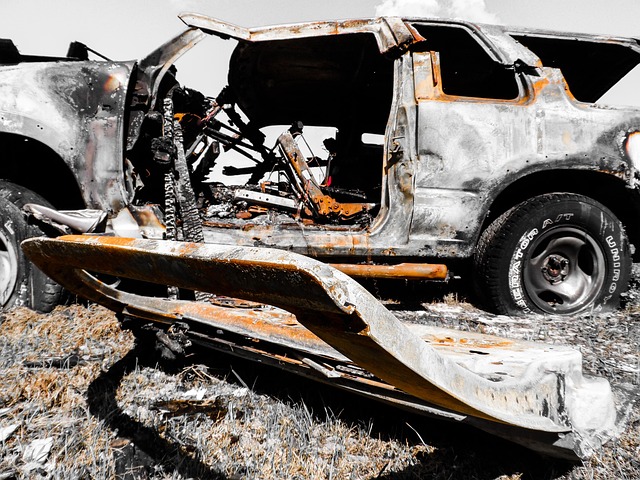In Chicago, selling a home with fire damage requires strict adherence to property disclosure laws, which mandate revealing known defects and material facts about the property. Sellers must document repairs, obtain permits, and address structural and cosmetic issues thoroughly. Compliance avoids legal repercussions, fosters buyer trust, and expedites the sale process. For "how to sell a house with fire damage Chicago," sellers should assess damage, consult contractors, maintain transparency, and prepare comprehensive disclosure statements with professional guidance to mitigate risks.
Selling a home with fire damage in Chicago comes with specific legal considerations. Illinois property disclosure laws aim to protect buyers, mandating that sellers reveal known issues. This article guides you through these requirements, focusing on fire damage disclosures in Chicago. Learn what to do if you discover fire damage before selling and understand the legal implications of non-compliance. By adhering to these steps, you can navigate the process smoothly and ensure a successful sale, even with how to sell a house with fire damage Chicago scenarios.
- Understanding Illinois Property Disclosure Laws
- Fire Damage Disclosure Requirements in Chicago
- What to Do If You Discover Fire Damage Before Selling
- Legal Implications of Non-Compliance and How to Avoid Them
Understanding Illinois Property Disclosure Laws

In Chicago and throughout Illinois, property disclosure laws play a crucial role in ensuring transparency during real estate transactions. When selling a home, especially one that has experienced fire damage, understanding these regulations is essential for both sellers and buyers. These laws mandate that sellers disclose known defects or material facts about the property to potential purchasers. This includes any significant issues like fire damage, which could impact a house’s structural integrity or safety.
For homeowners in Chicago looking to sell a property with fire damage, complying with disclosure laws is vital. It involves providing detailed information about the extent of the damage, the restoration efforts made, and any ongoing repairs needed. This process helps buyers make informed decisions, ensuring they are fully aware of the property’s condition before purchasing. Proper disclosure can prevent legal issues and foster trust between sellers and buyers in the real estate market.
Fire Damage Disclosure Requirements in Chicago

In Chicago, selling a house with fire damage comes with specific legal considerations. According to local property disclosure laws, sellers must disclose any known instances of fire damage to potential buyers. This includes revealing when and where fires occurred, as well as the extent of the damage done to the property. Failure to do so could lead to legal repercussions, including potential lawsuits from buyers who might have otherwise avoided purchasing the property had they been fully informed.
When preparing to sell a house with fire damage in Chicago, it’s crucial to document all repairs made and obtain any necessary permits. This not only ensures compliance with disclosure laws but also provides transparency to potential buyers. Repairs should be comprehensive, addressing structural integrity as well as cosmetic issues, to maximize the property’s value and mitigate legal risks associated with how to sell a house with fire damage Chicago.
What to Do If You Discover Fire Damage Before Selling

If you’re preparing to sell your home in Chicago and discover fire damage, it’s crucial to act swiftly but thoughtfully. The first step is to assess the extent of the damage; minor repairs might not be a major concern, but significant structural or cosmetic issues will require professional attention. Engage a qualified contractor for an accurate evaluation and repair estimate. This is essential when selling with fire damage in Chicago, as it ensures your home is safe and appealing to potential buyers.
Next, document everything—take photos and keep records of all communications and estimates. Real estate agents recommend transparent communication about any pre-sale repairs, so disclose the fire damage openly but also highlight that necessary fixes are underway. This proactive approach can help maintain buyer trust and speed up the selling process, ensuring a smoother transition for both parties.
Legal Implications of Non-Compliance and How to Avoid Them

When selling a home in Chicago, understanding Illinois property disclosure laws is crucial to avoid legal pitfalls. Non-compliance can lead to severe consequences for sellers, including potential fines and even liability claims from buyers. The most significant implication of not disclosing required information is that it could void the sale or result in a buyer’s lawsuit if they discover undisclosed issues post-purchase. These laws are designed to protect homebuyers by ensuring transparency about any material defects or potential hazards within the property.
To ensure compliance, sellers should thoroughly inspect their homes and document any existing issues, especially those that might be related to fire damage. If fire damage is present, it must be disclosed, along with details about when and how it occurred. Sellers can protect themselves by preparing a comprehensive disclosure statement, including a description of the damage, repairs made (or needed), and any relevant safety measures taken. Consulting with a real estate professional or attorney experienced in Chicago’s property laws can also help sellers navigate these regulations effectively, ensuring a smooth sale process and minimizing legal risks associated with fire damage in the home.
When selling a house with fire damage in Chicago, adhering to Illinois’ property disclosure laws is crucial. Understanding the specific requirements, such as disclosing fire damage, can help avoid legal complications and protect both you and the buyer. If you discover fire damage before selling, take prompt action to assess and mitigate the issue. This not only enhances the home’s value but also ensures compliance with local regulations, making the selling process smoother for everyone involved.






